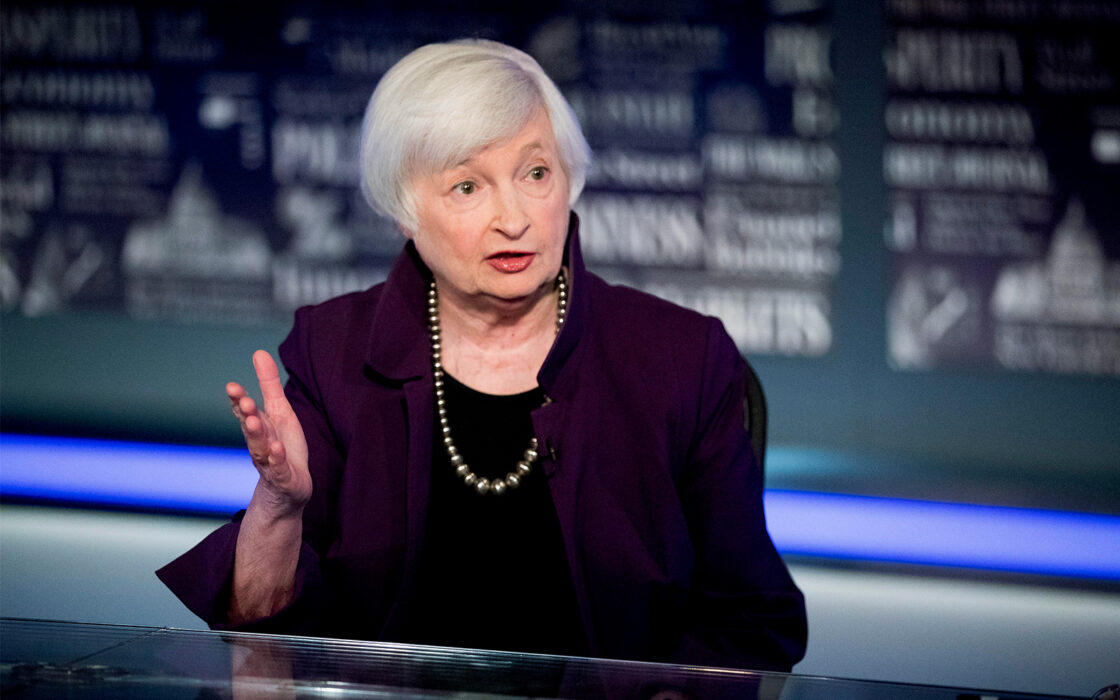Have you ever felt that moment of disbelief at the grocery store checkout? You’re not alone, and it’s something that even the high-profile Treasury Secretary Janet Yellen has been asked about recently. Let’s dive into the story that’s got everyone talking about inflation and its impacts.
In a surprising twist during an interview, Yellen was asked if she experiences "sticker shock" when she shops for groceries, considering the persistent inflation that’s been hitting everyone hard. Yellen, who has an impressive net worth of about $20 million, mentioned that she shops for groceries every week but doesn’t find the prices shocking. This quick, blunt response – "No" – definitely turned heads.
Despite a growing economy potentially boosting confidence in President Biden’s leadership as we approach the election, inflation remains a hot-button issue. Grocery prices have surged into double digits under Biden, leaving Americans frequently stunned by the cost of their weekly shop. Yahoo! Finance reporter Jennifer Schonberger pointed out that while global food commodity prices and shipping costs have dropped, food prices remain stubbornly high. Yellen attributed this to increased costs, including labor, for grocery firms.
Yellen also shared some optimism, stating that she expects inflation to decrease, hopefully hitting the Federal Reserve's 2 percent target by early next year. This comes as the Biden administration is taking steps to tackle the high cost of living, including measures to increase affordable housing access, a significant concern alongside grocery prices and high interest rates.
During a recent visit to Minneapolis, Yellen promoted these new investments, which include a $100 million fund to support affordable housing financing over the next three years. This is part of a broader strategy to address inflation, which she suggests is largely driven by housing costs rather than policy missteps.
Inflation and the economy are top of mind for voters as we head towards the 2024 election. Although inflation has dipped slightly to 3.3 percent in May, it’s still above the Federal Reserve's target and a significant drop from the 40-year high of 9.1 percent in June 2022.
Former President Trump has made inflation a key point in his campaign, frequently criticizing Biden’s handling of the economy. Meanwhile, Biden argues that Americans have more money to spend despite inflation, although his comments have sparked some backlash on social media. The debate over who’s to blame for rising costs – greedy corporations or policy failures – continues to rage.
Looking ahead, historical trends in economic performance before elections might offer some insights. The S&P 500’s performance this year has been strong, which historically bodes well for the incumbent president. However, Trump currently leads Biden in the polls by five points heading into the first presidential debate, highlighting the contentious battle ahead.
Adding to the drama, 16 Nobel prize-winning economists have warned that Trump’s policies could reignite inflation and harm the US economy. They argue that Biden’s economic agenda is far superior, despite the current challenges.
With a grim fiscal outlook, including a soaring national debt and the looming depletion of the Social Security trust fund, the stakes are incredibly high. As we edge closer to November, it’s clear that economic issues will be front and center in the minds of voters.

